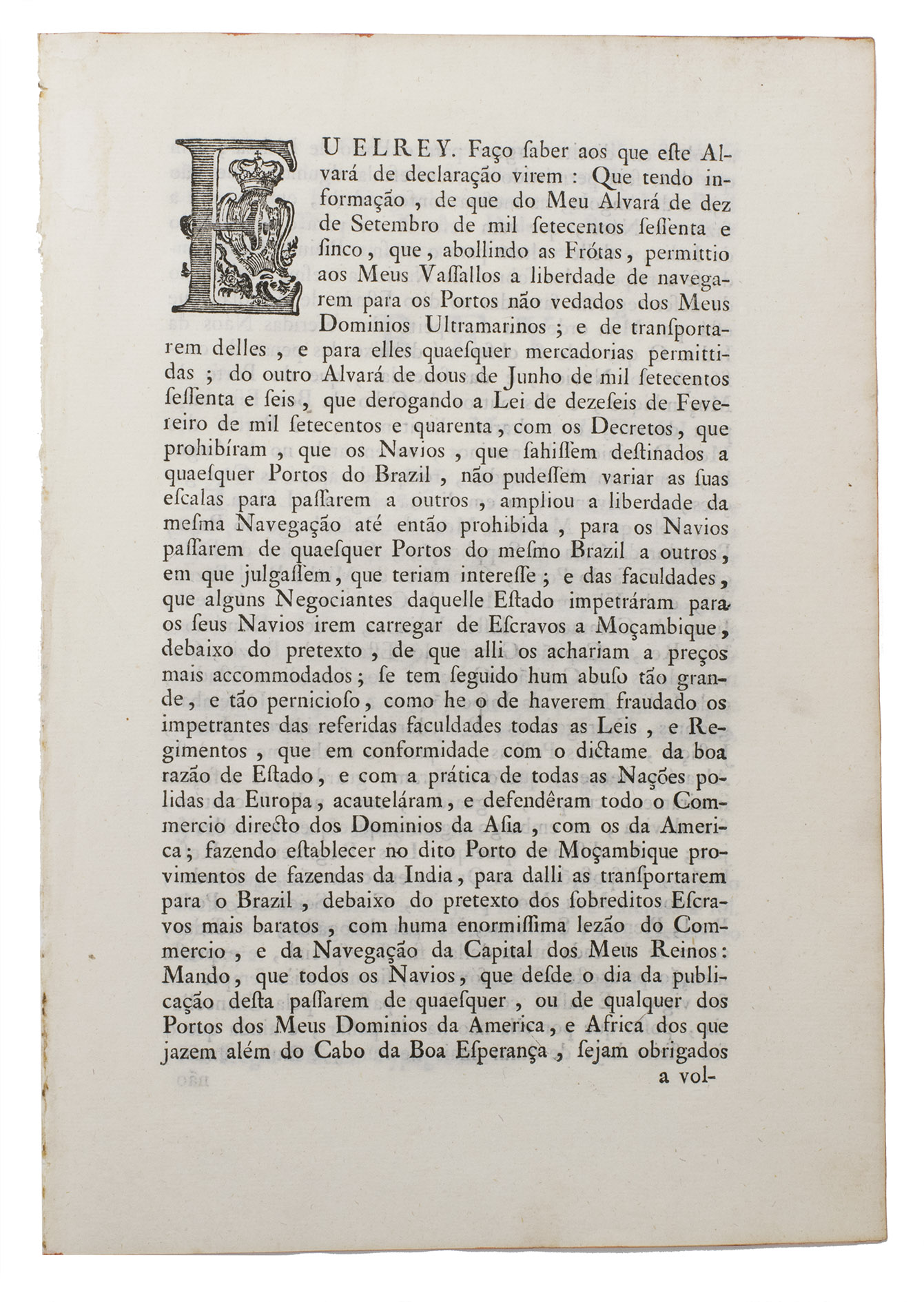[SLAVE TRADE - BRAZIL - JOSÉ I, King of Portugal].
[Drop title:] Eu Elrey. Faço saber aos que este alvará de declaração virem: que tendo informação, de que do meu alvará de dez de setembro de mil setecentos sessenta e sinco, que, abollindo as frótas, permittio aos meus vassallos a liberdade de navegarem para os portos não vedados dos meus dominios ultramarinos; e de transportarem delles, e para elles quaesquer mercadorias permittidas ...
[Lisbon], Na Regia Officina Typografica, [1772]. Folio (ca. 29 x 20 cm). With a large decorated woodcut initial "E" incorporating the Portuguese royal coat of arms. Disbound and subsequently mounted in a modern black stiff paper folder with a printed label mounted on the front wrapper. [3], [1 blank] pp.
€ 750
Very rare first issue (of two) of a late 18th-century decree by the Portuguese King José I (1714-1777) dealing with difficulties in the transportation of enslaved people from Mozambique to Brazil. This text, dated 12 December 1772 and signed "Rey" (King) at the end, is also signed by the notorious Portuguese nobleman and diplomat Marquez de Pombal. Sebastião José de Carvalho e Melo, 1st Marquis of Pombal (1699-1782), who was the Secretary of State of the Kingdom during the reign of Dom José I in the period of 1750-1777. It is concluded with a formal text, dated 18 December 1772 and signed by João Baptista de Araújo, a senior officer of the Secretariat of State.
In 1761, Marquez de Pombal prohibited the importation of enslaved people in Portugal and Portuguese India, not for humanitarian reasons, but because they were needed for labour in Brazil. He stimulated the trade of, mostly African, enslaved people for that colony and with his support two companies for slave trade were founded, the Companhia Geral de Comércio do Grão-Pará e Maranhão and the Companhia Geral de Comércio de Pernambuco e Paraíba. Both companies were privileged and had a monopolistic character. Their lists of shareholders included many Portuguese noblemen and clergy. Between 1757 and 1777, more than 25000 enslaved people were imported to Pará and Maranhão from West African ports.
The two issues can be identified by their catchwords on p. [1]: issue one shows the catchword as "a vol-", that catchword was changed in the second issue to "a".
The inner margin shows some signs of the previous binding. Otherwise in very good condition. Gauz, Portuguese and Brazilian books in the JCB, 772/1; WorldCat 1045359449 (3 copies); cf. Porbase 2301650 and (no copies).
Related Subjects:


